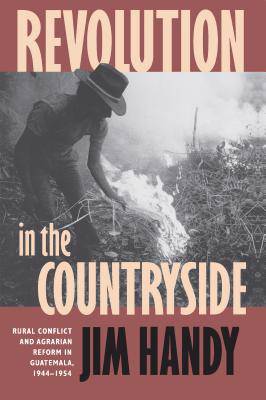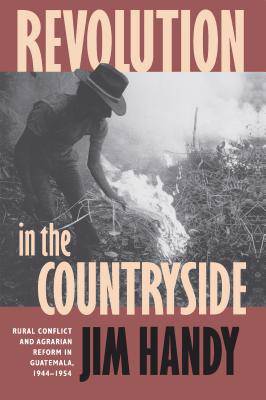
- Afhalen na 1 uur in een winkel met voorraad
- Gratis thuislevering in België vanaf € 30
- Ruim aanbod met 7 miljoen producten
- Afhalen na 1 uur in een winkel met voorraad
- Gratis thuislevering in België vanaf € 30
- Ruim aanbod met 7 miljoen producten
Revolution in the Countryside
Rural Conflict and Agrarian Reform in Guatemala, 1944-1954
Jim HandyOmschrijving
Although most discussions of the Guatemalan "revolution" of 1944-54 focus on international and national politics, Revolution in the Countryside presents a more complex and integrated picture of this decade. Jim Handy examines the rural poor, both Maya and Ladino, as key players who had a decisive impact on the nature of change in Guatemala. He looks at the ways in which ethnic and class relations affected government policy and identifies the conflict generated in the countryside by new economic and social policies. Handy provides the most detailed discussion yet of the Guatemalan agrarian reform, and he shows how peasant organizations extended its impact by using it to lay claim to land, despite attempts by agrarian officials and the president to apply the law strictly. By focusing on changes in rural communities, and by detailing the coercive measures used to reverse the "revolution in the countryside" following the overthrow of President Jacobo Arbenz Guzmán, Handy provides a framework for interpreting more recent events in Guatemala, especially the continuing struggle for land and democracy.
Specificaties
Betrokkenen
- Auteur(s):
- Uitgeverij:
Inhoud
- Aantal bladzijden:
- 284
- Taal:
- Engels
Eigenschappen
- Productcode (EAN):
- 9780807844380
- Verschijningsdatum:
- 29/04/1994
- Uitvoering:
- Paperback
- Formaat:
- Trade paperback (VS)
- Afmetingen:
- 156 mm x 235 mm
- Gewicht:
- 444 g

Alleen bij Standaard Boekhandel
Beoordelingen
We publiceren alleen reviews die voldoen aan de voorwaarden voor reviews. Bekijk onze voorwaarden voor reviews.









